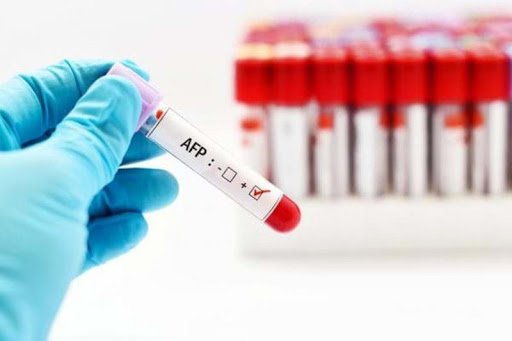What Is Alpha-Fetoprotein?
The Alpha-Fetoprotein (AFP) Test is a blood test that measures the levels of AFP in the blood. AFP is a protein produced by the liver and yolk sac of a developing baby during pregnancy, and by the liver in adults. The test is commonly used to screen for certain health conditions and is particularly helpful in the early detection of liver disease and certain cancers.
During pregnancy, the AFP test is used to screen for conditions such as neural tube defects, Down syndrome, and other chromosomal abnormalities. In adults, elevated levels of AFP may indicate liver conditions such as cirrhosis, hepatitis, or liver cancer. In some cases, the test may also be used to monitor the effectiveness of treatment for liver cancer.
The AFP test is a valuable tool in the early detection and monitoring of certain medical conditions. It is important to consult with a healthcare provider to understand the reasons for undergoing the test, as well as the potential implications of the results.
Uses Of Afp Test
The Alpha-Fetoprotein (AFP) Test is a blood test that measures the levels of AFP in the blood. This test is primarily used to screen for certain types of cancer, including liver cancer and testicular cancer. It can also be used to monitor the progression of certain liver conditions, such as cirrhosis and hepatitis. Additionally, the AFP test can be used during pregnancy to screen for certain birth defects, such as neural tube defects and abdominal wall defects.
One of the common uses of the AFP test is to monitor patients who are at a high risk for developing liver cancer, such as those with chronic liver disease or a family history of liver cancer. By measuring the levels of AFP in the blood over time, healthcare providers can identify any significant changes that may indicate the presence of liver cancer.
Another important use of the AFP test is during pregnancy. Elevated levels of AFP in a pregnant woman’s blood may signal a potential problem with the developing fetus, such as a neural tube defect or abdominal wall defect. In such cases, further testing, such as ultrasound or amniocentesis, may be recommended to confirm the diagnosis and determine the appropriate course of action.
Afp Test For Pregnancy
When it comes to monitoring the health of a developing fetus, the Alpha-Fetoprotein (AFP) Test is an essential tool for healthcare providers. This test measures the levels of AFP, a protein produced by the fetal liver, in the mother’s blood. The test is often performed between 15 and 20 weeks of pregnancy and is used to screen for certain abnormalities in the fetus.
During pregnancy, AFP levels can provide important information about the baby’s health. High levels of AFP may indicate a neural tube defect or a chromosomal abnormality, such as Down syndrome. On the other hand, low levels of AFP may be associated with a higher risk of chromosomal abnormalities, such as Edwards syndrome or Patau syndrome. While an abnormal AFP result does not guarantee that there is a problem with the fetus, further testing, such as ultrasound or amniocentesis, may be recommended to confirm the findings and provide a more accurate diagnosis.
In addition to screening for fetal abnormalities, the AFP test can also be used to assess the risk of certain pregnancy complications, such as preeclampsia and preterm birth. Research has shown that abnormal AFP levels may be associated with an increased risk of these conditions, allowing healthcare providers to take necessary precautions and provide appropriate care to ensure the best possible outcome for both mother and baby.
Afp Test For Liver Disease
An Alpha-Fetoprotein (AFP) Test is a blood test that measures the level of AFP in the blood. AFP is a protein that is normally present in the blood of a developing fetus. In adults, AFP levels are usually low, but they can rise if certain conditions are present, such as liver disease or certain types of cancer.
The AFP test for liver disease is often used to help diagnose and monitor conditions such as liver cancer, cirrhosis, and hepatitis. In patients with liver disease, AFP levels may be elevated, indicating that further testing or monitoring is necessary.
It is important to note that while an elevated AFP level can be a sign of liver disease, it is not a definitive diagnosis. Additional testing, such as imaging studies or liver biopsies, may be necessary to confirm the presence of liver disease and determine the appropriate course of treatment.
Afp Test For Cancer Detection
The Alpha-Fetoprotein (AFP) Test is a valuable tool in the detection and monitoring of certain types of cancer, particularly liver cancer. This blood test measures the levels of AFP, a protein produced by the developing fetus and by tumors, in the bloodstream. In cases where there is an elevated level of AFP, it can indicate the presence of certain cancers, including liver cancer, ovarian cancer, and testicular cancer.
For individuals at high risk of developing liver cancer, such as those with chronic hepatitis B or C infection, cirrhosis, or a family history of liver cancer, regular AFP testing can be an important part of their medical care. By monitoring AFP levels over time, doctors can detect the presence of cancer at an earlier stage, allowing for more effective treatment and a better chance of a positive outcome. It is important to note, however, that an elevated AFP level is not a definitive diagnosis of cancer and additional testing may be necessary to confirm the presence of cancer.
In addition to cancer detection, the AFP test can also be useful in monitoring the response to cancer treatment. After the initial diagnosis of cancer, regular AFP testing can help doctors assess the effectiveness of treatments such as chemotherapy or radiation therapy. A decrease in AFP levels over time can indicate that the treatment is working, while an increase may signal the need for a change in the treatment plan.
Interpreting Afp Test Results
When it comes to interpreting Alpha-Fetoprotein (AFP) test results, it’s important to understand what the test measures and what the results may indicate. The AFP test is a blood test that measures the level of AFP, a protein produced by the liver, in the bloodstream. Elevated levels of AFP can indicate certain health conditions, so it’s important to take into consideration the context of the test results when interpreting them.
One of the main uses of the AFP test is to screen for liver cancer. Elevated levels of AFP in the bloodstream can indicate the presence of liver cancer, especially in individuals at high risk for the disease. However, it’s important to note that elevated AFP levels can also be caused by other conditions, such as cirrhosis or hepatitis. Therefore, it is essential to consider the overall clinical picture and any other diagnostic tests when interpreting AFP test results.
It’s important for patients to discuss their AFP test results with their healthcare provider to gain a better understanding of what the results may mean for their health. Depending on the context and level of AFP detected, further testing or monitoring may be recommended to provide a comprehensive assessment of the individual’s health status.
Frequently Asked Questions
What is alpha-fetoprotein (AFP)?
Alpha-fetoprotein (AFP) is a protein produced by the liver of a developing fetus. It is also produced by some cancer cells and in small amounts by the liver in adults.
What are the uses of an AFP test?
The AFP test is commonly used to monitor liver disease and liver cancer. It is also used as a screening test during pregnancy to detect certain birth defects, such as spina bifida and anencephaly.
How is the AFP test used in pregnancy?
During pregnancy, the AFP test is used to screen for potential birth defects, such as neural tube defects and abdominal wall defects, in the fetus.
How is the AFP test used for liver disease?
In patients with liver disease, the AFP test is used to monitor the progression of liver cancer, as well as to assess the effectiveness of treatment.
How is the AFP test used for cancer detection?
AFP levels can be elevated in individuals with certain types of cancer, such as liver cancer, testicular cancer, and ovarian cancer. The test can be used to monitor response to treatment and to detect cancer recurrence.
How do you interpret AFP test results?
Normal AFP levels vary by age and gender. Elevated AFP levels may indicate the presence of certain types of cancer, while low levels may be associated with liver disease or other conditions.
What are the potential limitations of the AFP test?
The AFP test is not specific for cancer and can be elevated in non-cancerous conditions, such as pregnancy and liver disease. It is important to consider other clinical and diagnostic factors when interpreting AFP test results.




